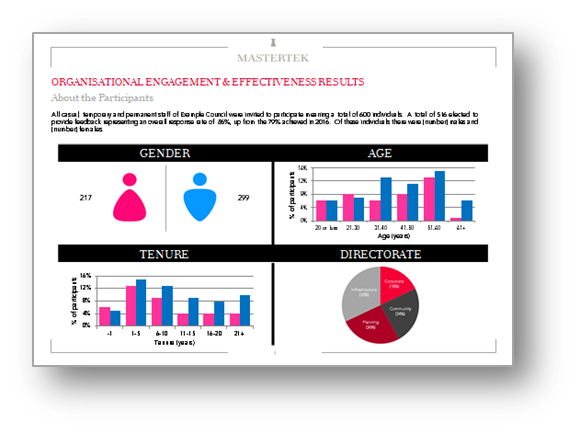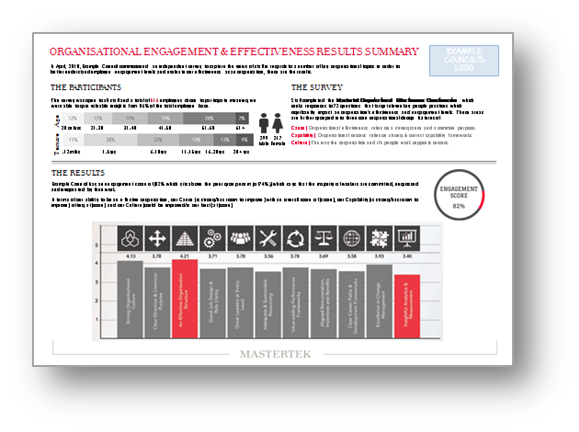Do your employees know the organisation values? How engaged are your employees? Do your employees know how to contribute to organisation success? Sometimes the best way to know is simply to ask your employees for their views.
An employee opinion survey serves to give your employees a voice. Not only can this improve employee engagement, but it can also provide access to a wealth of employee ideas by, uncovering the view of the ‘silent’ majority. By acting on what your employees have to say, experience tells us that you can realise improved organisational performance, employee commitment, employee engagement and decreased turnover and absenteeism.
Through employee insights, your organisation can discover where to focus your efforts to achieve organisational growth by probing different people practices such as leadership, employee engagement and organisational culture. You can also ascertain whether there are certain teams or sections with specific needs or whether opportunities for improvement are widespread; this allows you to take a more targeted approach to your people initiatives.
So where to start? There are many reasons why engaging employees in your organisational development process is an important and valuable business practice, some of which we’ve highlight below.




